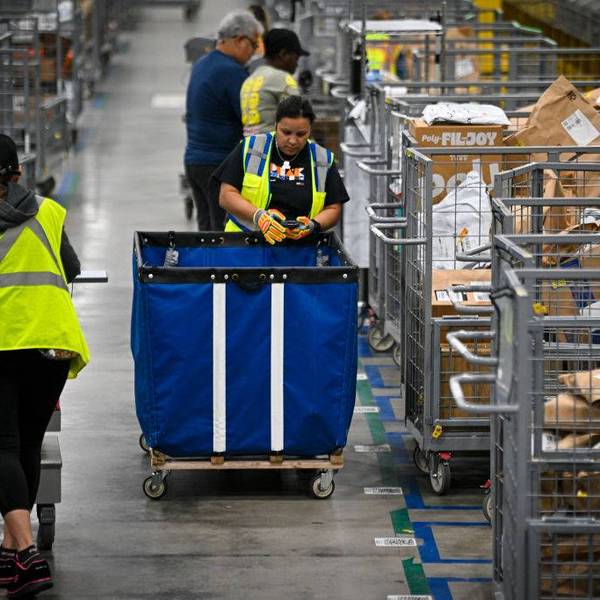This will be the first Labor Day of the presidency of Donald J. Trump, who came to office riding a wave of anti-establishment anger from average working people. No one can say they didn't see it coming.
By the time Trump was elected, the typical American household had a net worth 14 percent lower than the typical household in 1984. The richest 1 percent owned more than the bottom 90 percent.
Last year's annual Wall Street bonus pool alone was larger than the annual year-round earnings of all 3.3 million Americans working full time at the federal minimum wage of $7.25 an hour.
While 90 percent of US adults born in the early 1940s were earning more than their parents by the time they reached their prime earning years, only half of adults born in the mid-1980s are earning more than their parents in their prime earning years.
Most also have less economic security than their parents. Nearly one out of every five American workers is in a part-time job. Two-thirds are living paycheck to paycheck.
Most are working more hours than they worked decades ago and taking fewer sick days or vacations.
The gap in life expectancy between the nation's most affluent and everyone else is also widening.
Increasing numbers of Americans on the downward economic escalator are succumbing to opiods, chronic liver cirrhosis, and poisonings that include drug overdoses.
The standard explanation for why all this has occurred is that most American workers are no longer "worth" as much as they were before digital technologies and globalization. So they must now settle for lower wages and less security.
Rubbish.
This doesn't explain why workers in other advanced economies facing similar forces haven't succumbed to them nearly as dramatically as have workers in the United States.
Or why the pay of top executives at big companies has soared from an average of 20 times that of the typical worker 40 years ago to almost 300 times now.
Or why the denizens of Wall Street, who in the 1950s and 1960s earned comparatively modest sums, are now paid tens or hundreds of millions annually.
And it can't account for the decline in the starting wages of recent college graduates. A college education is now a prerequisite for joining the middle class but no longer a sure means for gaining ground once admitted to it.
To attribute all this to the impersonal workings of the market, and assume it's because most workers aren't "worth" as much as before, is to ignore the increasing ability of moneyed interests to alter the system for their own benefit - demolishing trade unions, turning full-time employees into contract workers, and monopolizing industry.
America's economic and political elites could have used their growing political and economic clout to help workers get ahead - through better schools and more affordable college, comprehensive job retraining, wage insurance, better public transportation, and expanded unemployment insurance.
They could have pushed for universal health insurance.
They could have paid for all this by accepting, even lobbying for, higher taxes on themselves.
They could have sought to reduce their own political clout by demanding limits on campaign spending.
But they did the reverse: They spent more and more of their ever-growing wealth and power to rig the game to their own advantage.
As a result, trust in all the major institutions of our society has plummeted.
In 1964 more than 60 percent of Americans thought government was "run for the benefit of all the people" while just 29 percent said government was "pretty much run by a few big interests looking out for themselves."
Nowadays the numbers are almost reversed, with 76 percent believing government is run "by a few big interest" and just 19 percent saying government is run "for the benefit of all."
In the early 1960s most Americans said they had a "great deal of confidence" in the nation's major companies, banks, and financial institutions.
Now just one in ten has a great deal of confidence in them.
In his first seven months as president, Trump has done nothing for American workers. In fact, his attempt to undermine the Affordable Care Act, his retreat from Labor Department regulations boosting overtime pay, and his proposed tax cuts for the wealthy and big corporations will make most workers worse off.
But he is in office because of their anger and distrust, and he's still feeding off it. "The establishment protected itself, but not the citizens of our country," Trump said in his inaugural address. "Their victories have not been your victories; their triumphs have not been your triumphs."
Tragically, Trump was right.
Now all of us are paying the price.




